Blog entry by Bob Gilmore
By far the most important part of this years ITx Conference was the Mandatory Review of Qualification panels and discussions around NZ's sub-degree qualifications, along with the peer networking that came from those.
Everything looks set to be in place to have the qualifications accepted and in place by November and that just leaves development of actual programmes of study and then their implementations within ITPs and PTEs around New Zealand.
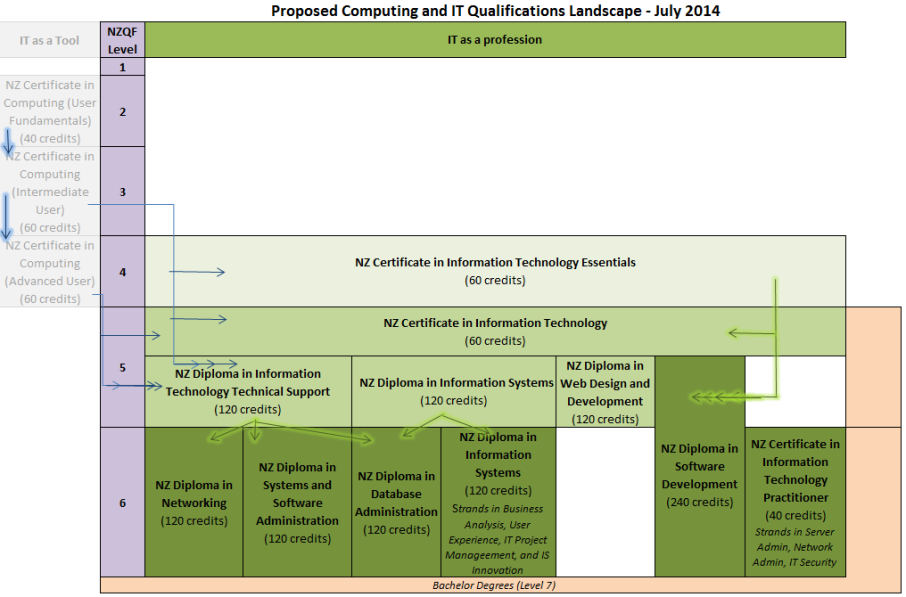
Above is the proposed landscape for the new qualifications. There have been a few changes since 2013 and one of the big ones has been the acceptance by NZQA over the embedded 60 credit NZ Cert in IT inside each of the other four Level 5 Diplomas. This is a huge about face from NZQA who have been suffering an allergic reaction to embedded qualifications for some years now.
The actual qualification submissions are up on the NZQA website here. They are jointly owned by a consortium including IITP and NZQA with help from CITRENZ. There was some discussion in the 2013 conference about CITRENZ actually owning the qualifications, however for a variety of reasons this was dropped. What CITRENZ will do is develop a set of programmes of study for the qualifications which will be available to all member institutions and they will also continue on with their role regarding moderation and QA for their qualifications as they do with the current Blue Book. It is likely that NZQA will also develop courses of study for the qualifications based on Unit Standards.
The diagram below is an (extremely rough) rendition of Sam's (Samuel Mann, Otago Polytechnic and chair of CITRENZ) explanation of how the layering between qualifications, programs of study and individual institutions will work:
There is still some discussion about how exactly the consistency agreements between NZQA, CITRENZ and individual institutions will work. NZQA seems to want actual moderation from institutions, whereas CITRENZ believes that them being accredited to maintain a programme of study and helping moderate their members should be enough. More on this should come out in the next few weeks.
CITRENZ is fighting to keep the programmes of study broad and not overly specific in both terms of content and assessment to allow for flexible and innovative delivery and to help keep the programmes relevant in the face of continual change which NZQA doesn't currently appear to support, as demonstrated with the inflexible and irritatingly specific Unit Standards, however they are coming around to our point of view.
All member institutions will offer at least one of the qualifications and each of the qualifications will be used, so CITRENZ is now committed to developing programmes of study for each. There has been some discussion around how exactly institutions offering degrees will actually implement the courses since they see the diplomas as a means to feed students into their degrees.
The proposed programmes of study in development by CITRENZ are listed below.
Level 4 Certificates
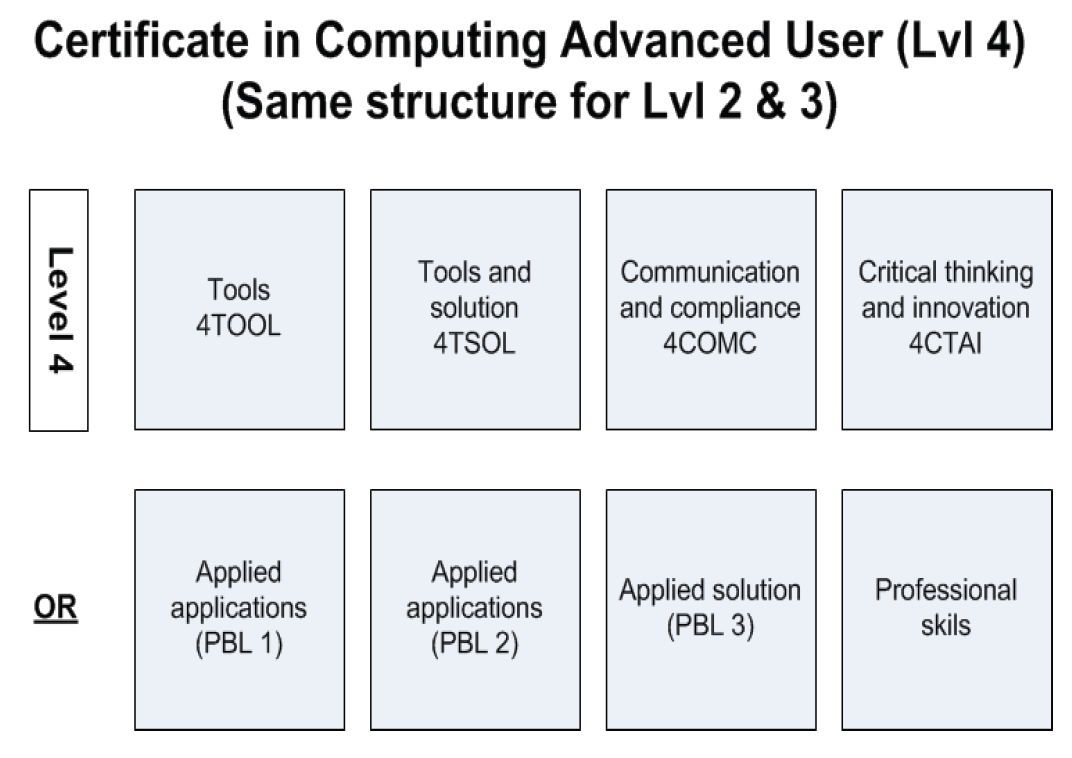
- Note that this programme is from the IT as a tool stream, instead of the IT as a profession.
- The Applied applications papers give additional flexibility to allow institutions to deliver programmes in specific tools.
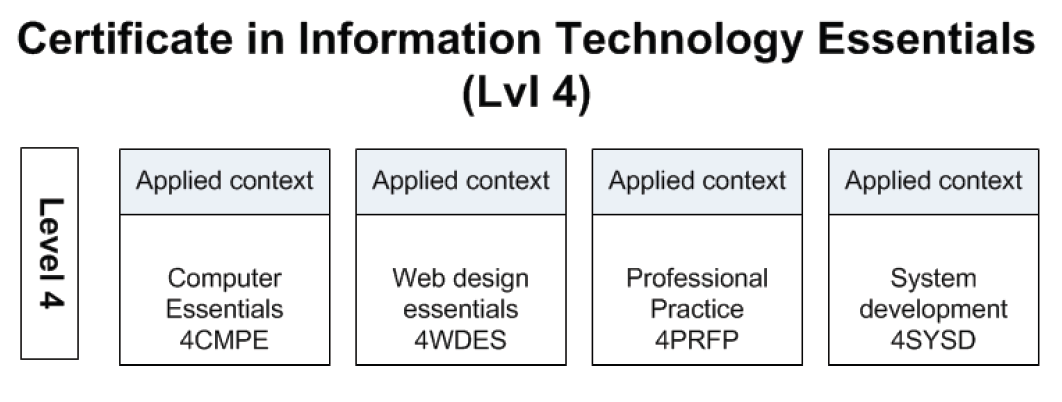
Level 5 Certificates and Diplomas
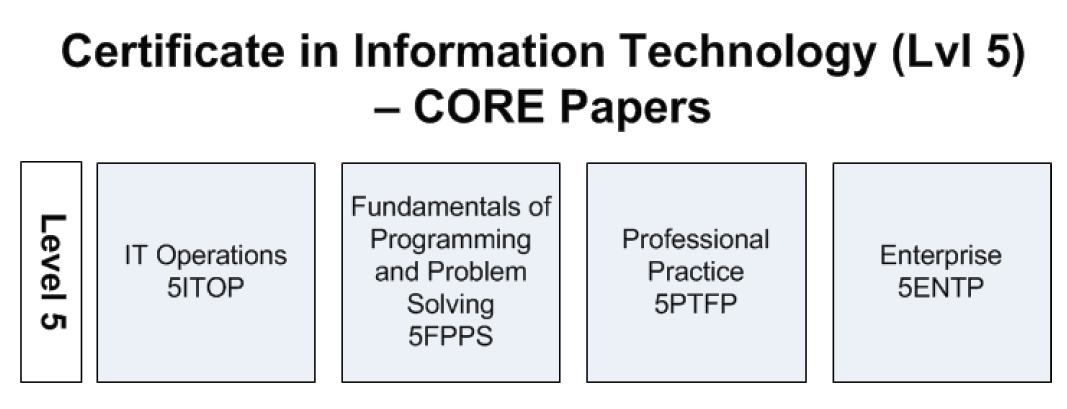
- Note that these papers are also embedded inside each of the following two level 5 diplomas.
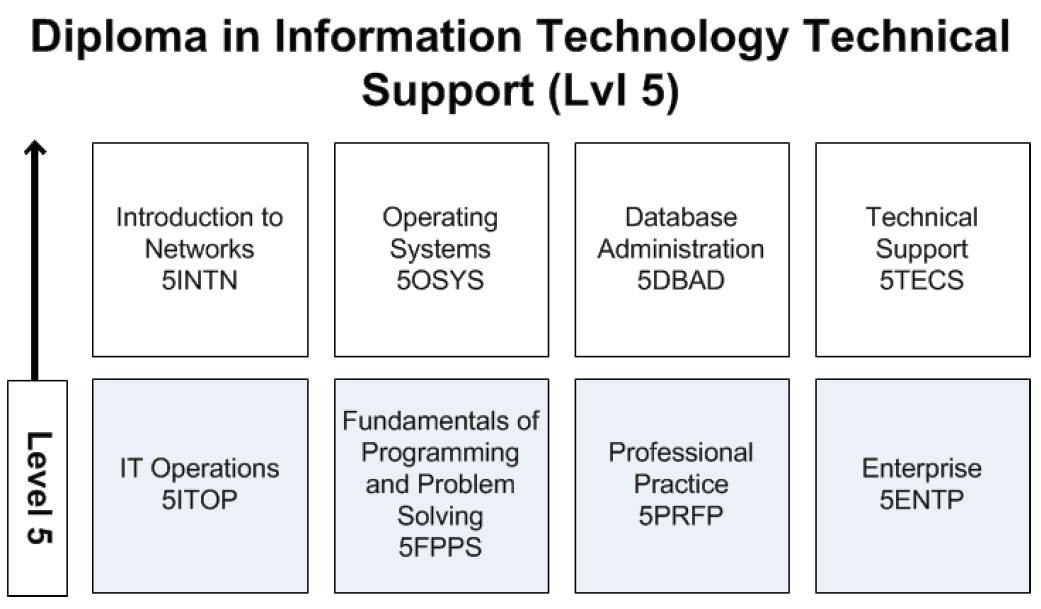
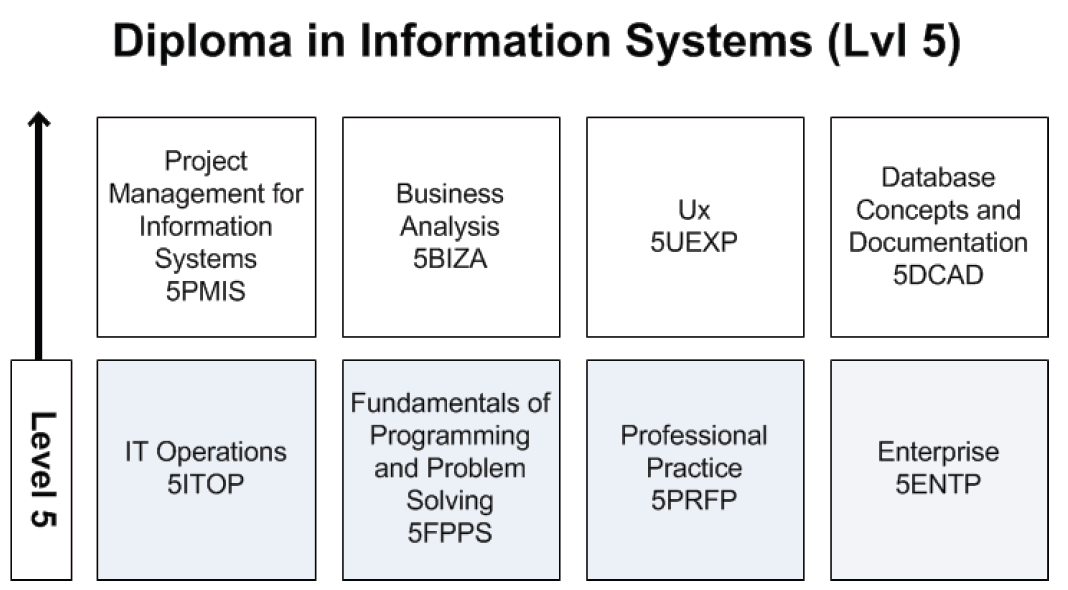
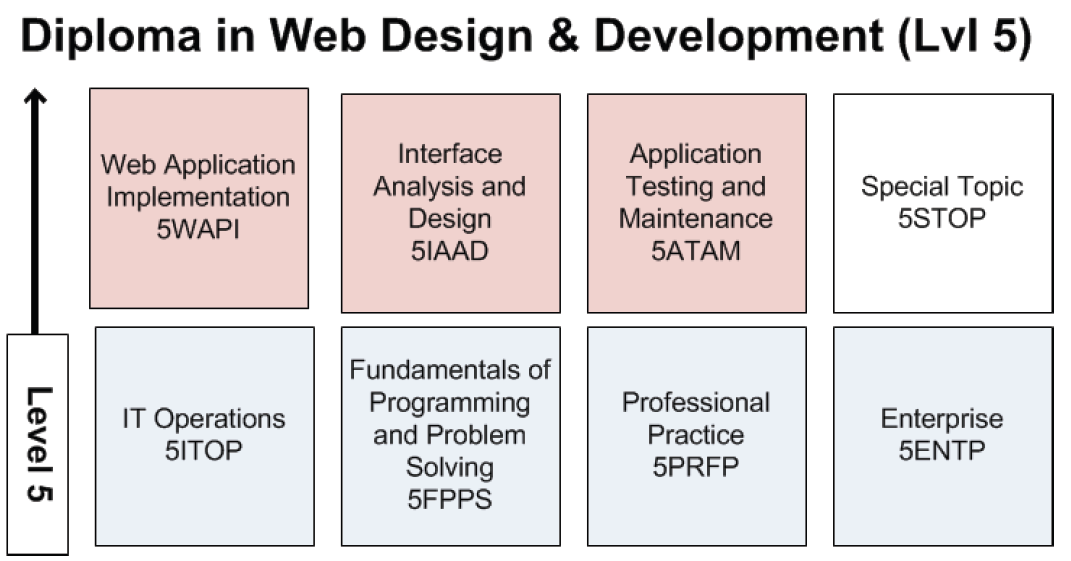
Level 6 Diplomas
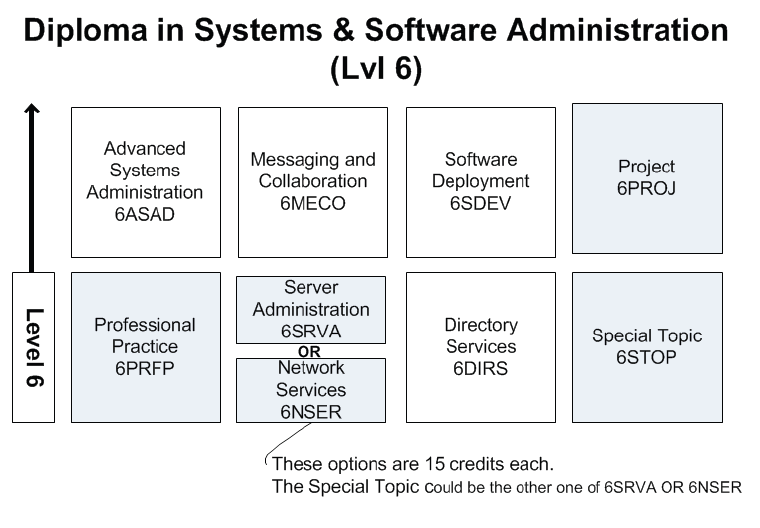
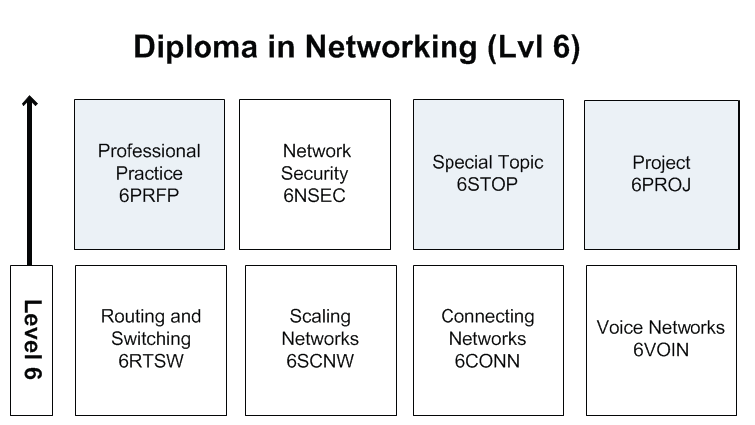
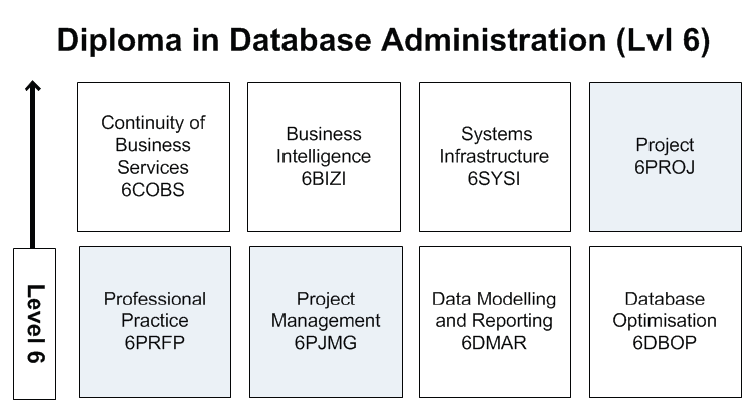
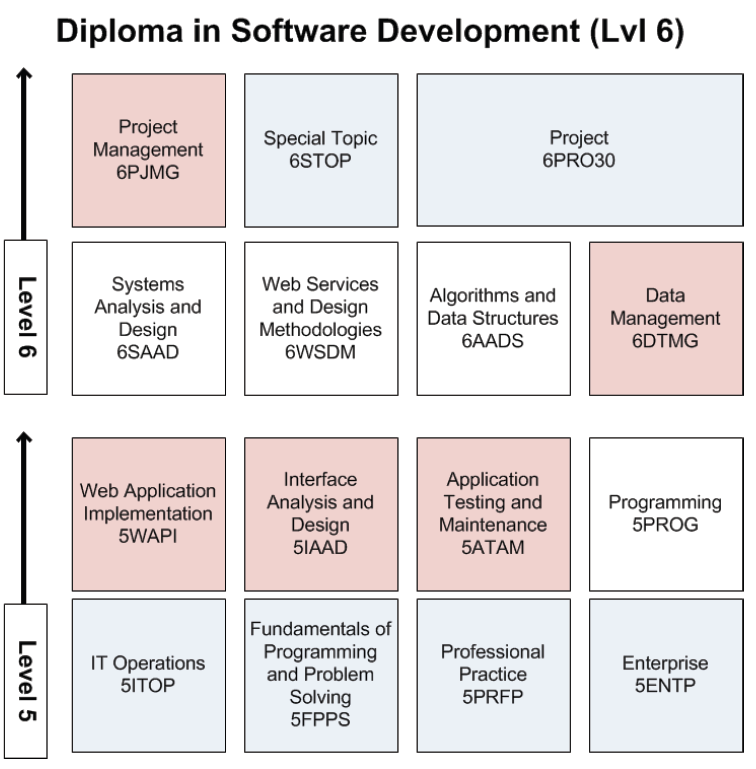
- Unlike the other diplomas, this is a full two year diploma at level 6 instead of two diplomas, one at level 5 and the second at level 6.
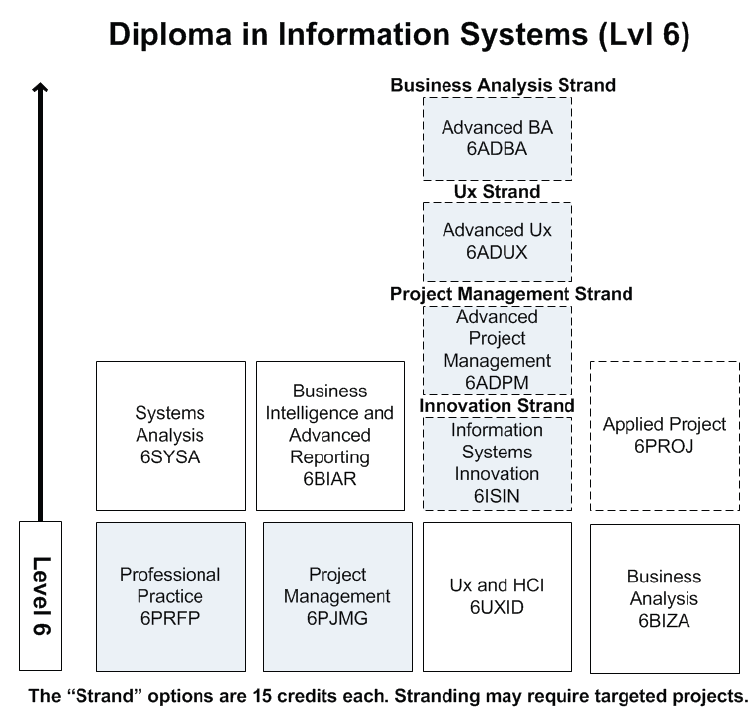
There are some interesting points here too.
- Industry wanted specialisation earlier and because of this there is no real generalist diploma.
- There is a bigger push for project management, ethics and professionalism at all levels. The project management is completely new for us; we have not included any of this beyond core concepts in any of our current papers.
- It was expected that each of the qualifications would have a path to employment as well as further education, however it is difficult to see this with the lower end (NZ Cert in IT Essentials L4 and NZ Cert in IT Level 5).
- The Database management diploma was hard to develop as it can be led to from both the IS and IT level 5 diplomas, despite there being very little overlap in those two diplomas.
- Industry wanted the software development diploma to be 2 years rather than one as (and I agree) it would be difficult to justify offering a qualification in this area after just a single year.
- The practitioner level 6 cert has no ethics or professionalism at all. This was highlighted as a potential problem and the it was asked if this qualification should even be in the landscape.
- Finally, there was significant overlap with the web development diploma and the review in the design qualifications. It is an odd disconnect to not see these quals linked in with the ICT qualifications. The lack of a level 6 diploma in this area is a result of this overlap, although there is room for movement here after the first review.
So, the question is where does this leave TPP?
We could potentially offer all the the certs and diplomas, however we simply do not have the resources to do so. Personally, I would like to be flexible enough so that students could pick and choose which papers they want to sit and therefore which diploma(s) they complete. If anything this current year has taught me is that we can be flexible in delivery of papers to smaller groups. Unfortunately there is very little overlap in each of the diplomas beyond the first 4 papers of the level 5 diplomas. We have to be careful where we put our resources.
Outside of the Software Development diploma, there is very little programming. This is problematic for a couple of reasons, but the big one is that it makes it harder to stream into degree study. The positive is that the non programming diplomas, and especially the Networking and Systems and Software diplomas match nicely with the Cisco certifications Tom is currently working toward offering. However these diplomas contain very little in my area of expertise to offer.
Ultimately, it is up to the PAC and management to decide where we want to go, however I would recommend that we, by beginning of 2016:
- Pick up one of either the level 2 or 3 qualifications from the IT as a Tool streams (NZ Certificate in Computing) to act as a pathway into the diplomas, available to students as part time, casual or full time options.
- Second semester in a year, offer the Certificate in Information Technology Essentials (Level 4) as a full time second term intake option. This could be an option for semester 2, 2015 if everything is available.
- Offer one level 5 and one level 6 diploma at the start of each year from our core competencies.
- Either recruit or up skill staff to cover additional diplomas as desired and offer those for extra flexibility.
Our current core skill set completely covers:
- Diploma in Information Technology Technical Support (Level 5).
- Diploma in Web Design and Development (Level 5)
- Diploma in Systems and Software Administration (Level 6)
Additionally:
- If we decide to continue with Tom's Cisco training and complete CCNA1 and CCNA2, we will be able to offer the entirety of Diploma in Networking Level 6.
- Many of the papers in both the Diploma in Database Administration (L6) and Diploma in Software Development are likely to be covered by Bob. However additional professional development will be required in some areas.
All in all there were some good sessions and I think that most institutions are feeling positive about the process although there are still some unanswered questions. I'm sure I haven't covered everything and I'm sure there are questions, so please feel free to leave any in the comments or email them to me.